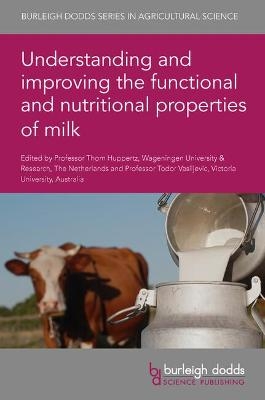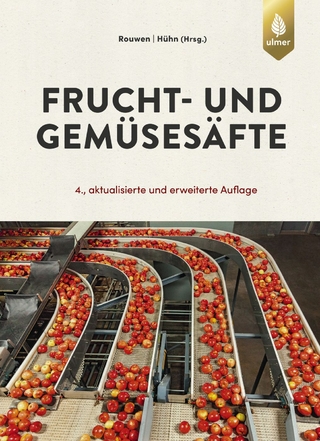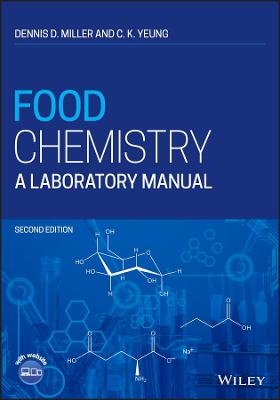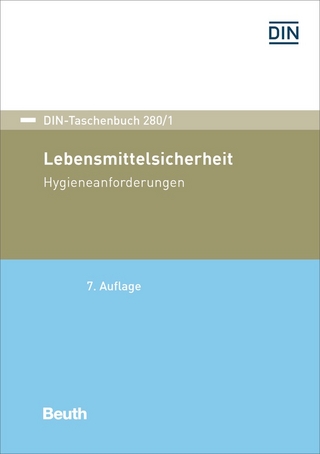
Understanding and Improving the Functional and Nutritional Properties of Milk
Burleigh Dodds Science Publishing Limited (Verlag)
978-1-78676-819-3 (ISBN)
"The book contains many contributions informed by recent research. These will be of value to nutritionists, dairy scientists and technologists working in research, industrial and teaching roles…the editors have achieved their aim of producing a reference work that addresses the nutritional and functional properties of milk and its contribution to human nutrition. It is a valuable reference source for dairy professionals."
(International Journal of Dairy Technology)
The dairy sector is under increasing scrutiny on environmental and health grounds. Optimising the nutritional and functional properties of milk as part of a balanced diet offers one solution to these challenges. This book draws on a wealth of knowledge from a team of internationally-renowned dairy experts to show how this can be achieved.
Understanding and improving the functional and nutritional properties of milk reviews the latest research on the remarkable range of functional and nutritional properties of milk that make it both a key food source and ingredient in a wide range of dairy products. The collection discusses proteins, lipids, carbohydrates and other components of milk, as well as how our understanding can be used to optimise the quality of milk and dairy products such as cheese and yoghurt.
Dr Thom Huppertz is Professor of Dairy Science and Technology at Wageningen University & Research, The Netherlands and Principal Scientist at FrieslandCampina, The Netherlands. He is also Editor in Chief of the International Dairy Journal and a Distinguished Visiting Professor at Victoria University, Australia. He was formerly Principal Scientist at NIZO and is internationally known for his research on developing functional and nutritional products and ingredients from milk. Dr Todor Vasiljevic is Professor of Food Science and Head of the Advanced Food Systems Research Unit within the Institute for Sustainable Industries and Liveable Cities at Victoria University, Australia. He is an editor of the International Dairy Journal. Professor Vasiljevic is internationally recognised for his research on milk proteins and probiotics. Dr Jan Geurts is an expert on dairy nutrition & health and specifically metabolic health. He has authored and co-authored more than 100 journal and conference papers to date. Currently, Dr Geurts works as a principal scientist in the Expert Team Nutrition of FrieslandCampina. Previously, he was assistant professor in the Department of Molecular Cell Biology at the University of Maastricht, where he was involved in clinical and nutritional research for the CARIM and NUTRIM Research Institutes, respectively. Dr. Golfo Moatsou is an Associate Professor in the Department of Food Science and Human Nutrition in the Agricultural University of Athens, Greece. Her research and teaching activities focus on Dairy and Cheese Science and Technology. She is a single or co-author of 120 publications, i.e., 13 chapters of international books, 10 books and university notes, 52 peer-reviewed articles, 45 conference contributions. Her research activities have been carried out in the frame of 18 research projects, 13 of which in collaboration with dairy companies. Dr Thom Huppertz is Professor of Dairy Science and Technology at Wageningen University & Research, The Netherlands and Principal Scientist at FrieslandCampina, The Netherlands. He is also Editor in Chief of the International Dairy Journal and a Distinguished Visiting Professor at Victoria University, Australia. He was formerly Principal Scientist at NIZO and is internationally known for his research on developing functional and nutritional products and ingredients from milk. Dr Todor Vasiljevic is Professor of Food Science and Head of the Advanced Food Systems Research Unit within the Institute for Sustainable Industries and Liveable Cities at Victoria University, Australia. He is an editor of the International Dairy Journal. Professor Vasiljevic is internationally recognised for his research on milk proteins and probiotics. Nina Aagaard Poulsen obtained her PhD degree in conservation genetics from Department of Biological Sciences, Aarhus University, Denmark in 2008. She has worked at the Department of Food Science , Aarhus University since 2009. Her research focuses on understanding factors affecting variation in composition of bovine milk especially in relation to genetic background, feeding and sustainable production and to explore how such variations affect nutritional, technological and health-related properties of milk, which ultimately can be exploited for milk differentiation. Hilton Deeth has had a long involvement with dairy research involving milk and a range of dairy products. He joined the University of Queensland in 1995 where he taught food science and technology and supervised several postgraduate students and research projects. From 1996 to 2008 he was Director of the Centre for UHT Processing at the University of Queensland. He has published over 160 research papers and 38 book chapters. He co-authored the 2017 book on “High Temperature Processing of Milk and Milk Products” and co-edited the 2018 book on “Whey Proteins. From Milk to Medicine”. He is now Emeritus Professor of Food Science at the University of Queensland and consults to the dairy industry.
Part 1 General
1.The role of the dairy matrix in the contribution of milk and dairy products to the human diet: Jan Geurts, FrieslandCampina, The Netherlands;
2.Digestion of milk protein and milk fat: Aiqian Ye, Riddet Institute, Massey University, New Zealand;
3.Milk composition and properties: interspecies comparison: Golfo Moatsou, Agricultural University of Athens, Greece;
Part 2 Proteins and lipids
4.Caseins and casein micelles: Thom Huppertz, FrieslandCampina and Wageningen University & Research, The Netherlands and Victoria University, Australia; and Inge Gazi, Utrecht University and Netherlands Proteomics Center, The Netherlands;
5.Advances in dairy protein science: whey proteins: Dimuthu Bogahawaththa and Todor Vasiljevic, Victoria University, Australia;
6.Understanding nutritional and bioactive properties of whey: Geoffrey McCarthy, Teagasc Food Research Centre, Ireland; James A. O’Mahony, University College Cork, Ireland; and Mark A. Fenelon and Rita M. Hickey, Teagasc Food Research Centre, Ireland;
7.Functional ingredients based on bioactive peptides from milk proteins: Egon Bech Hansen, Technical University of Denmark, Denmark;
8.Advances in dairy lipid science: physicochemical aspects: Daylan A. Tzompa-Sosa, Ghent University, Belgium; and Naomi Arita-Merino, Wageningen University, The Netherlands;
9.Advances in understanding the biosynthetic pathways of milk lipids, their health benefits and bioactive properties: Nurit Argov-Argaman, The Hebrew University of Jerusalem, Israel;
Part 3 Carbohydrates and other components
10.Lactose in milk: properties, nutritional characteristics and role in dairy products: Thom Huppertz, FrieslandCampina and Wageningen University & Research, The Netherlands;
11.Nutritional properties and biological activity of lactose and other dairy carbohydrates: Michael Gänzle, University of Alberta, Canada;
12.Advances in understanding of indigenous milk enzymes: Lotte Bach Larsen, Søren Drud-Heydary Nielsen and Nina Aagaard Poulsen, Aarhus University, Denmark; and Alan L. Kelly, University College Cork, Ireland;
13.Advances in understanding milk salts: Xiao-Chen Liu and Leif H. Skibsted, University of Copenhagen, Denmark;
Part 4 Optimising milk composition and quality
14.Advances in instrumental analysis of dairy products: Paul Andrewes and Stephen E. Holroyd, Fonterra Research and Development Centre, New Zealand; Brendon Gill and Richard Johnson, Fonterra Co-operative Group Ltd, New Zealand; and Andrew Lewis, Andrew MacKenzie and Mikhail Vyssotski, Callaghan Innovation, New Zealand;
15.Genetic factors affecting the composition and quality of cow’s milk: Nina Aagaard Poulsen and Lotte Bach Larsen, Aarhus University, Denmark;
16.Dietary factors affecting the composition of cow’s milk: Martin Auldist, Agriculture Victoria Research, Australia;
17.Sensory properties of milk: understanding and analysis: Tim Coolbear, Nathalie Janin, Rachel Traill and Rebecca Shingleton, Fonterra Research and Development Centre, New Zealand;
18.Microbial quality and spoilage of raw cow’s milk: Maria Kazou, Alkmini Gavriil, Chryssi Kounenidaki and Effie Tsakalidou, Agricultural University of Athens, Greece;
19.Understanding the contribution of milk constituents to the texture of dairy products: liquid milk products: Hilton C. Deeth, University of Queensland, Australia;
20.Understanding the contribution of milk constituents to the texture of dairy products: fermented products: Georg Surber, Harald Rohm and Doris Jaros, Technische Universität Dresden, Germany;
21.Understanding the contribution of milk constituents to the texture of dairy products: cheese: Michel Britten, Agriculture and Agri-Food Canada, Canada;
| Erscheinungsdatum | 16.09.2021 |
|---|---|
| Reihe/Serie | Burleigh Dodds Series in Agricultural Science ; 114 |
| Co-Autor | Dr Jan Geurts, Dr Aiqian Ye, Prof Golfo Moatsou |
| Zusatzinfo | Color tables, photos and figures |
| Verlagsort | Cambridge |
| Sprache | englisch |
| Maße | 152 x 229 mm |
| Themenwelt | Technik ► Lebensmitteltechnologie |
| Weitere Fachgebiete ► Land- / Forstwirtschaft / Fischerei | |
| ISBN-10 | 1-78676-819-4 / 1786768194 |
| ISBN-13 | 978-1-78676-819-3 / 9781786768193 |
| Zustand | Neuware |
| Haben Sie eine Frage zum Produkt? |
aus dem Bereich


